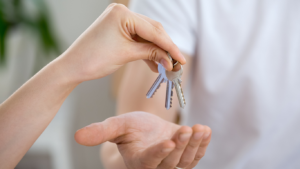When it comes to selling a home, your asking price can make or break the entire process. Price it too high, and your home might sit on the market for months with no serious buyers. Price it too low, and you risk leaving money on the table. That’s why setting the right asking price is one of the most important decisions you’ll make as a seller.
But how do you figure out what the right number is? It’s not guesswork. It’s a smart balance between market research, realistic expectations, and professional guidance.
Let’s walk through what every seller should know before setting their price tag.
Pricing Based on Emotion Can Hurt Your Sales
It’s natural to feel attached to your home. Maybe you raised a family there or poured time into renovations. But buyers don’t see your memories. They see square footage, layout, neighborhood value, and condition.
Pricing emotionally often leads to overpricing. When that happens, buyers skip right past your listing, assuming it’s not worth the cost. Worse, the longer your home stays on the market, the more people wonder what’s wrong with it. Eventually, you may have to lower the price anyway, but by then, your listing may have lost its momentum. Taking emotions out of pricing gives your sale a better shot at success from day one.
MORE NEWS: Rediscover Tempe with your best summer staycation yet
INDUSTRY INSIGHTS: Want more news like this? Get our free newsletter here
Local Market Conditions Play a Big Role
Every housing market is different, and even within the same city, neighborhoods can vary dramatically. That’s why it’s important to look at local trends. Are homes in your area selling quickly? Are prices climbing or cooling down?
A strong seller’s market means you may have little room to price higher because demand is greater than supply. In a buyer’s market, where homes sit longer and buyers have more options, pricing competitively is key to attracting attention. Your real estate agent or a local home buying expert can help you read your market.
Check Out Recent Comparable Sales
Looking at recent sales of similar homes (often called comps) is one of the smartest ways to figure out where your price should land. Comps help you understand what buyers are paying, not just what sellers are asking.
Make sure to consider homes with similar square footage, layout, age, upgrades, and location. A remodeled home down the block might’ve sold for more, but if yours needs some work, that gap needs to be factored in.
The most accurate comps are from homes sold in the past 90 days, but if there aren’t many in your area, go back a bit further or adjust based on how fast your market is changing.
Pricing High with Room to Negotiate Isn’t Always Smart
Many sellers believe they should start high so there’s wiggle room for negotiations. While that sounds logical, it can backfire.
Buyers today are savvy. With online listings at their fingertips, they’ll quickly pass overpriced homes. You might not even get a chance to negotiate if your price scares them off right away. Instead of starting too high, aim for a fair and accurate price that draws real interest.
When priced right, you might even create competition between buyers, sometimes leading to offers above asking.
Online Searches Depend on Price Ranges
Most buyers start their home search online and filter listings by price range. If your price is just over a common threshold (say, $405,000 instead of $399,900), you could be missing a huge group of buyers who’ve capped their search below $400K.
Smart pricing puts your home within the right search brackets, increasing your visibility and click-throughs. The more eyes on your listing, the better your chances of a fast, strong offer.
Condition and Upgrades Matter More Than You Think
You can’t just look at size and location when setting your price; buyers care deeply about condition. Have you updated your kitchen or replaced roof recently? That might justify a higher price. But if your home needs repairs, that needs to be reflected too.
Sometimes, sellers believe their home is worth more because of personal touches or custom features. But what matters most is how the market values those upgrades, not just how much you spent on them.
Keep the buyer’s mindset in focus: What will they think is worth paying for?
Time on Market Impacts Perception
Once your home is listed, the clock starts ticking. The first two weeks are critical; this is when your home gets the most exposure and attention. If your price is too high, you risk losing that valuable momentum.
As days on the market increase, buyers start wondering what’s wrong with the property. That can lead to lowball offers or none at all.
Setting the right price from day one helps avoid this pitfall and increases your chances of a smoother, quicker sale.
Working with Experienced Professionals Pays Off
You don’t have to do this alone. Real estate agents, appraisers, or direct home buyers can help guide your pricing decision with data-backed insights. They know what buyers in your area are looking for and how much they’re willing to pay.
If you’re considering a more direct and flexible route, companies like Integrity House Buyers can provide offers based on local market conditions and the current state of your home, without all the listing hassle.
Whether you go the traditional route or sell to a home buyer, expert advice will help you avoid missteps and price your home wisely.
Be Ready to Adjust if Needed
Sometimes, even the best research can miss the mark slightly. If your home isn’t getting showings or offers, don’t panic, but do reassess. Maybe the market shifted slightly, or maybe buyers just aren’t responding to the price.
A quick pivot can help. Price reductions aren’t ideal, but they’re better than sitting unsold for months. Stay flexible and watch buyer feedback carefully. Being proactive helps you stay ahead of the curve and keeps your sales moving forward.
Smart Pricing Leads to Smooth Closings
Setting your asking price isn’t just about picking a number. It’s about positioning your home for success. By focusing on the facts, tuning into your market, and getting solid guidance, you can price with confidence and attract the right buyers fast.
And when your home is priced right, the path to closing becomes a whole lot smoother.




